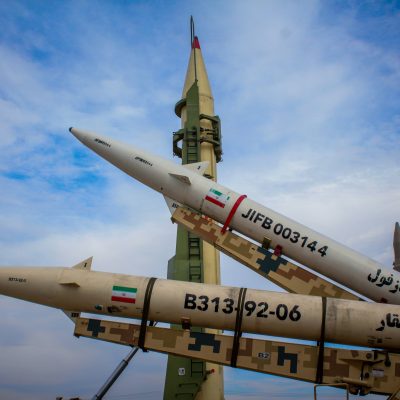Gaza opposite

How can we avoid the trap set for us by the history of the Israeli-Palestinian conflict? Our democracies are torn between two equally necessary imperatives. On the one hand, we must defend Israel’s right to exist, to defend itself and to prosper in maximum security, first and foremost as a matter of principle, but also because the terrorist attacks carried out by Hamas on 7 October 2023 make this requirement a daily reality. On the other hand, we must defend international law, humanitarian law and the laws of war, which implies recognising the Palestinian people, their right to exist in an independent state alongside the State of Israel, rejecting the occupation of the West Bank and denouncing the horrors imposed by Israel on the people of Gaza.
How can this be done?
Silence is not an option. For weeks, Western governments turned a blind eye, with a few exceptions – Spain, Ireland, France – to the suffering of civilians in Gaza. At the same time, Europe has been willing and able to show the Ukrainians maximum assistance and ethical support: in doing so, it has given substance to the accusations of hypocrisy and double standards levelled at us by all the countries of the South.
Unilateral defence of the Palestinians is an even worse option: this is the path chosen by the left-wing LFI, which has led it to adopt and encourage anti-Semitism in France and anti-Zionism everywhere. Ignoring the causes of the ongoing war in Gaza and denying the terrorist nature and objectives of Hamas serves neither the cause of the Palestinian people nor the security of Israel.
But unilateral defence of Israel is also impossible: it is impossible to turn a blind eye to the war crimes of the Israeli army in Gaza, to the openly fascist remarks of certain members of Netanyahu’s cabinet, to the protests of some Israelis themselves, and of some of our best intellectuals, Jewish or otherwise.
This is the strategic dilemma we face: choosing to defend only one of the two sides means betraying our principles; not choosing leads to powerlessness, and therefore to laissez-faire and the law of the strongest.
It is urgent that the EU find a way out of this impasse and the intellectual confusion that feeds it as quickly as possible. This means clearly defending and embracing the following three equally necessary principles:
- Denouncing the policies of a government in Israel does not mean being anti-Semitic or hostile to the existence of the State of Israel.
- The West’s guilty conscience over the Holocaust cannot be used as an argument for turning a blind eye to the war crimes of Netanyahu’s government.
- Recognising the existence of a Palestinian state does not mean legitimising Hamas terrorists or questioning or endangering the existence of the State of Israel.
The European Union has all the powers and many of the instruments to implement these principles. The Europeans have signed a series of trade and cultural agreements with Tel Aviv, even though it is located outside the European continent, making Israel a closer partner of the EU than any other non-member country: the Association Agreement (2000) allows free trade in most agricultural and industrial products; Israel also participates in the Horizon research programmes (€95 billion for the period 2021-2027), the Galileo programme (the satellite positioning system), and the Erasmus+ programme (student exchanges).
Faced with the continuation of military operations and the blockade of humanitarian aid to Gaza, several member countries are beginning to react. The new German Chancellor, Friedrich Merz, considers that ‘Israel’s actions can no longer be justified’. The Netherlands, supported by other countries including France, has called for a review of the association agreement, which the Council approved on 20 May. Trade is indeed the EU’s trump card, as it is Israel’s leading partner (it receives 24% of Israel’s exports and accounts for 31% of its imports in 2022) . On the military front, however, the EU has no jurisdiction and therefore no agreement with Israel: it is the Member States that decide whether or not to sell arms to the Jewish state, and they alone can decide to halt these transfers, as Spain has just done.
Based on this picture, there are many options that could influence the Netanyahu government’s policy. First, agricultural products from the occupied West Bank could be excluded from the association agreement and therefore taxed or even simply refused. Secondly, the very basis of the agreement could be denounced as violated: Article 2 stipulates that ‘relations between the Parties, as well as all provisions of the Agreement itself, shall be based on respect for human rights and democratic principles, which inspire their domestic and international policies and constitute an essential element of this Agreement’. Denouncing the agreements linking Israel to other European programmes is also a possible option.
It is a difficult situation for Europeans, torn between respect for democratic principles and international law on the one hand, and the fight against anti-Semitism and anti-Zionism on the other. But the line is clear: the condemnation of all war crimes and genocide, regardless of the conflict in question, is imperative. Benjamin Netanyahu may well decide to renounce democracy and tarnish Israel’s image. The member states of the European Union cannot and must not be complicit in this catastrophic reversal of history.




